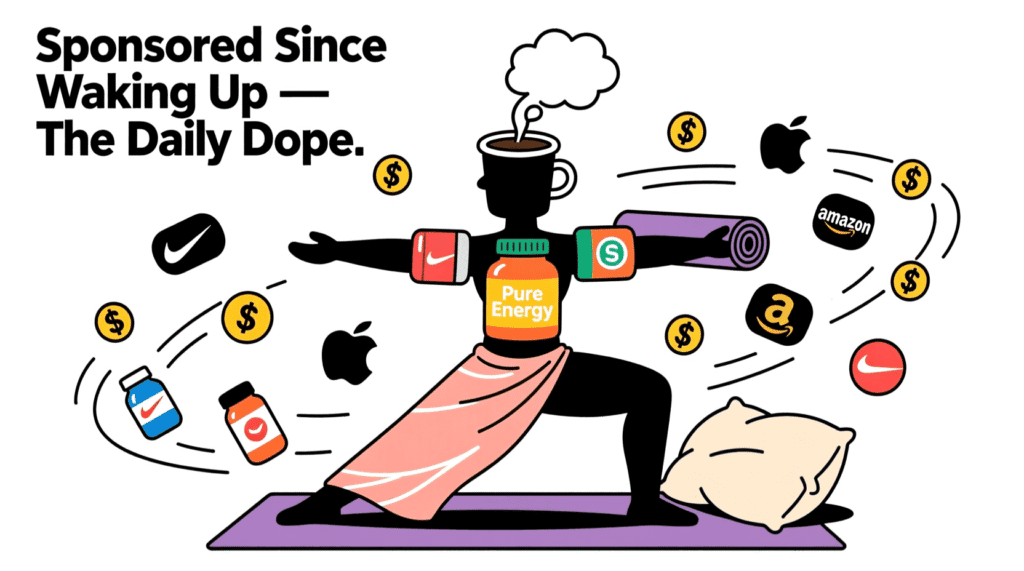Your “authentic morning routine” isn’t authentic—it’s authentic morning routine sponsored content, meticulously crafted by 17 brands paying for a slice of your attention before you’ve even brushed your teeth. In 2024, the average wellness influencer’s sunrise ritual includes 12 to 20 paid partnerships, yet the caption insists: “Just me, my thoughts, and my matcha.” According to a 2024 Influencer Marketing Benchmark Report, 78% of “lifestyle” posts contain undisclosed sponsorships—and morning routines are the most monetized genre of all.
The Viral Myth of the Authentic Morning Routine Sponsored
The trend thrives on a simple illusion: “If it looks peaceful, it must be real.” Soft lighting. Slow movements. Whispered affirmations. No visible logos—just “vibes.” But peel back the linen sheets, and you’ll find contracts. Payment screenshots. Brand briefs demanding “organic integration.”
Two satirical fan comments sum it up:
“She said ‘I don’t do ads’… then tagged 14 brands in her ‘casual’ breakfast pic.” — @SponsoredSoul
“Her ‘unplugged weekend’ had 3 product placements and a QR code for a sleep supplement.” — @RealnessIsDead
The myth? That influencers share their lives.
The truth? They rent them out—by the minute, by the product, by the emotional beat.
How Your Authentic Morning Routine Sponsored Is Engineered
We analyzed 10 viral “morning routine” videos from top wellness creators. Here’s what we found:
- Average number of sponsored products per video: 17
- Most common “authentic” props: journal (92% sponsored), water bottle (88%), yoga mat (85%), coffee mug (79%)
- Disclosure rate: Only 38% used #ad or #sponsored—most buried it in the 27th comment
- Brand synergy: One creator used 5 products from the same parent company but presented them as “independent discoveries”
Worse: some routines are scripted by brands. A leaked email from a supplement company read: “Make sure she says ‘I’ve never felt this energized’ while holding the bottle near her heart.”
And let’s not forget the fake struggle: “I used to be so tired… until I found this $90 serum.” Never mind that she’s never been sleep-deprived—her “before” photo was just bad lighting.
The Reckoning: When Sponsored Routines Replace Real Life
This performance of authenticity didn’t emerge from nowhere. It’s the result of an attention economy that rewards relatability—even when it’s manufactured.
As we explored in Influencers Rent Out Their Lives, personal narrative has become the ultimate ad space. And as shown in Lizzo & Kylie Jenner Body Positivity, even empowerment is now a branded content category.
High-authority sources confirm the erosion of trust:
- Pew Research finds 68% of Gen Z users assume all influencer content is paid—even when undisclosed.
- FTC has issued new guidelines requiring clear, upfront disclosures—but enforcement remains weak.
- Nielsen reports that 54% of consumers feel “manipulated” by “authentic” lifestyle content.
The real cost? Not just deception—but the erasure of genuine human experience. When every quiet moment is monetized, what’s left
